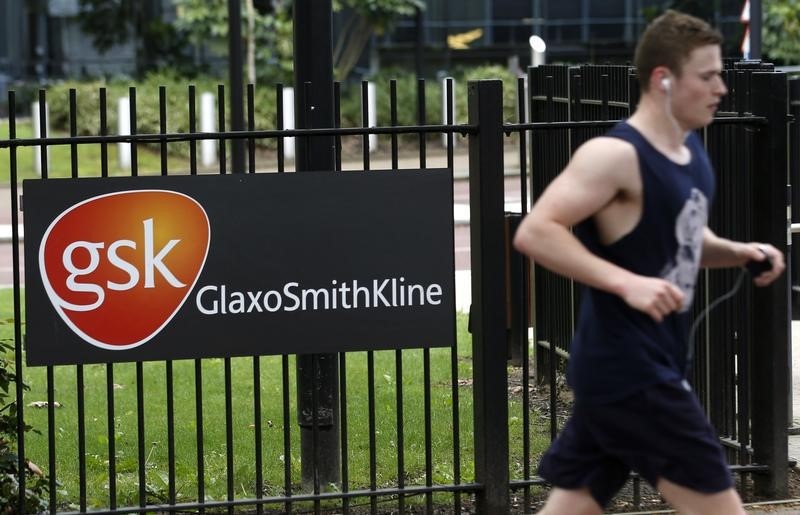By Ben Hirschler
LONDON (Reuters) - GlaxoSmithKline (L:GSK) said on Wednesday it would not be pushed into an early spin-off or sale of its consumer health business, despite speculation the unit could be a target for the likes of Reckitt Benckiser (L:RB) or Procter & Gamble (N:PG).
Britain's biggest drugmaker has forged a leading non-prescription consumer health business, with 2015 sales of 6 billion pounds ($8.7 billion), following a complex asset swap with Novartis (VX:NOVN) that concluded last year.
Chief Executive Andrew Witty reiterated in a results call with reporters that the creation of the consumer joint venture (JV) with Novartis, in which GSK has a controlling 63.5 percent stake, gave "optionality" for the future.
But he stressed GSK was only one year into a three-year process of integrating Novartis' products and doubling the profit margins at the business.
"It would be extremely unwise to do anything in anticipation of that," he said. "The chances of us doing something in an accelerated time frame are, I think, extraordinarily low."
Even once the consumer operation is bedded down and running at a "steady state", it was not obvious that GSK would be better off spinning it off, he added.
"If you were asking that question today, based on everything I can see from an external environment, my recommendation would probably be not to change the status quo. But obviously at a different date in the future you may come to a different conclusion to that question," Witty said.
A spokeswoman for Reckitt declined to comment on its potential interest in GSK's operations but said the company was interested in growing its consumer health business and looked at all opportunities where Reckitt could be a better owner.
Officials at Procter & Gamble declined to comment.
The consumer unit sells many successful brands, including Sensodyne toothpaste and a range of over-the-counter remedies, such as the painkillers Voltaren and Panadol. Novartis has an option to sell its stake in the JV to GSK after three years.
GSK argues that building up its presence in such long-lasting consumer brands gives the drugmaker a more stable and sustainable earnings profile.
But in an era where many companies are breaking up to achieve greater focus, not all its shareholders agree with the strategy.
The issue has been kept live by a high-profile call by Neil Woodford, founder of Woodford Investment Management, for GSK to be split up.
($1 = 0.6879 pounds)
